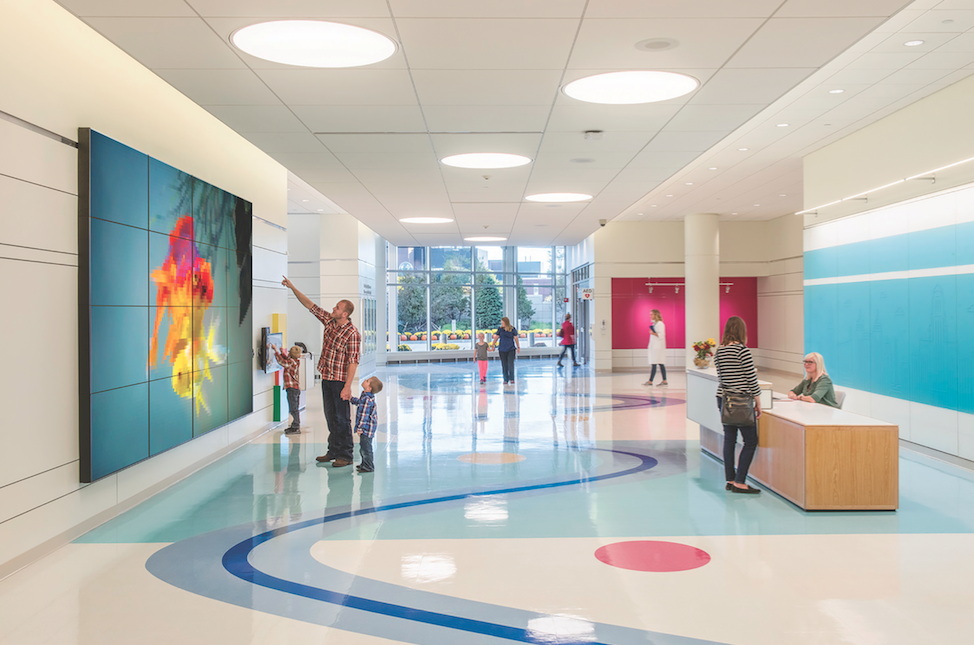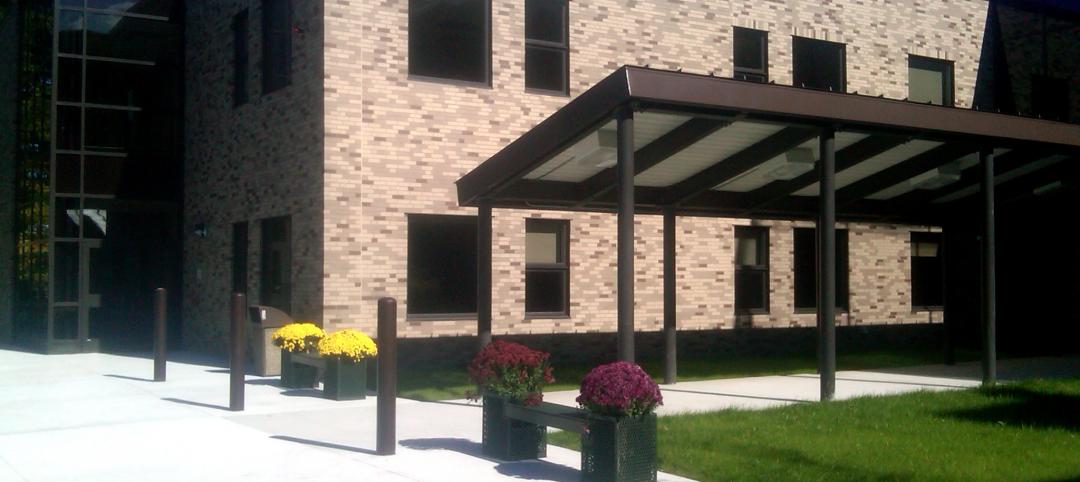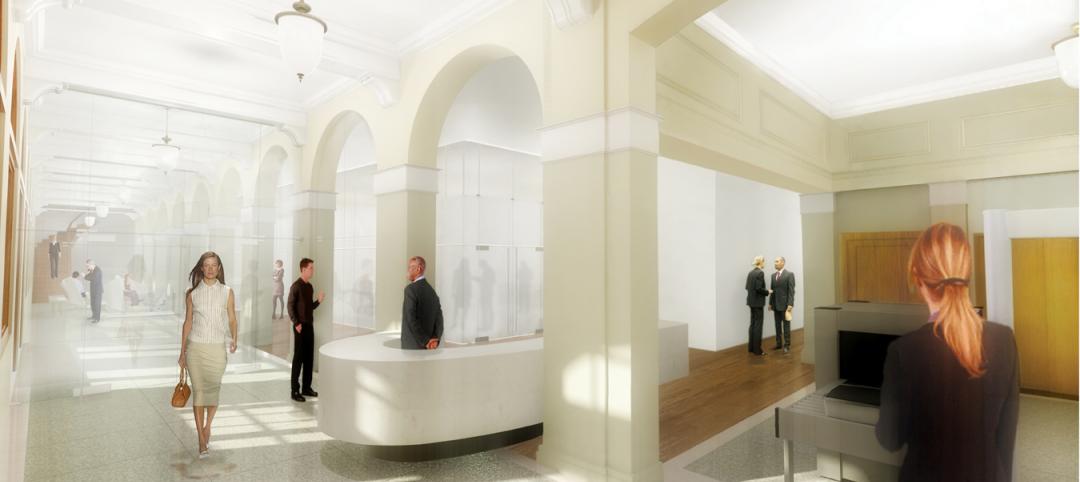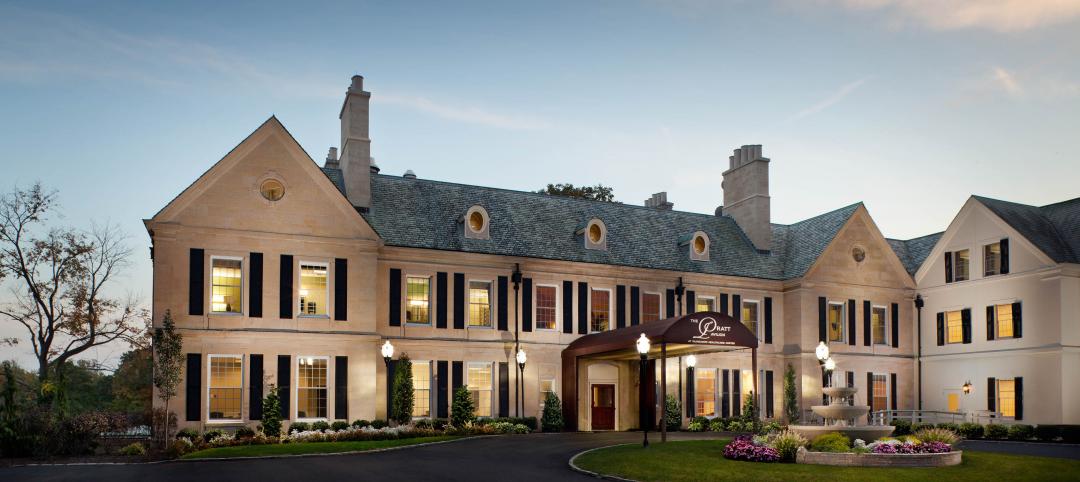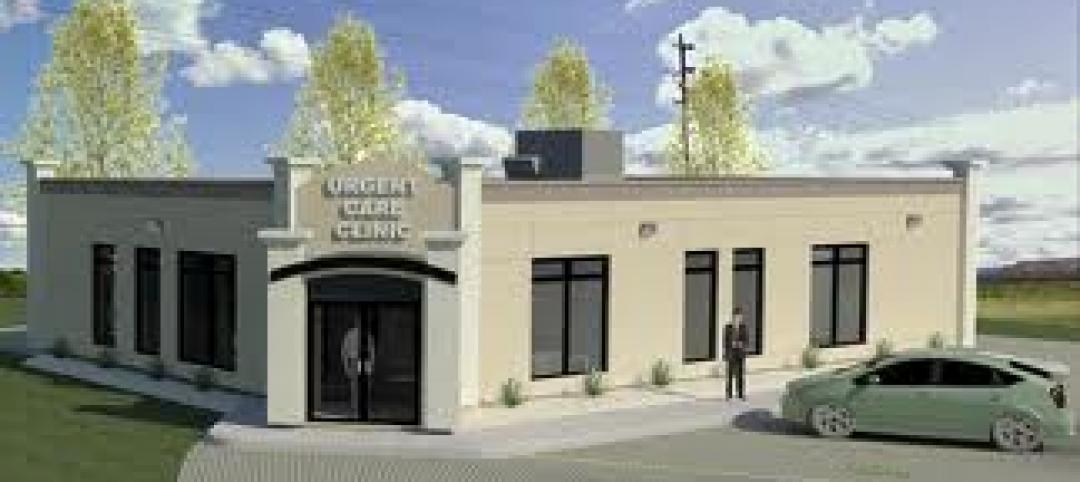Faced with the complexities of value-based payment models and the uncertainties surrounding healthcare reform, the nation's healthcare delivery systems are taking the long view of their operations.
“They're looking at everything from organizational structures, staffing, and services, all the way down to the cost of building and operating a facility,” says Mike Zorich, PE, LEED AP, Client Executive with engineering firm IMEG.
Case in point: Boston Medical Center's multi-year campus consolidation will trim its footprint by 60 beds and 329,000 sf, saving $25 million a year in operating costs.
See also: Top 160 Healthcare Architecture + AE Firms - 2018 Giants 300
See also: Top 90 Healthcare Engineering + EA Firms - 2018 Giants 300
See also: Top 105 Healthcare Construction + CM Firms - 2018 Giants 300
Academic medical centers are also modernizing. The IPD team for Sutter Health’s California Pacific Medical Center, San Francisco—which includes SmithGroupJJR, Boulder Associates, and HerreroBOLDT—is building two replacement hospitals, closing an existing campus, and converting another one from inpatient to outpatient care.
“We are quickly transitioning from patient-centered to patient-driven care,” says Heather Chung, EDAC, LEED AP, VP/Health Studio Leader, SmithGroupJJR. “Patients are changing what it means to be accessible and convenient and are shaping what healthcare providers deliver.”
“The healthcare market continues to reach further into communities and away from the traditional hospital for many front-line services,” says IMEG’s Zorich. “Healthcare buildings used to be designed for more than 50-year life spans, but many of the smaller off-campus outpatient facilities are now looking at 20 years or less.”
An emphasis on reducing costs and improving efficiency is fueling the use of Lean construction and prefabrication.
Prefab helped Skanska shave more than $200,000 in construction costs off a 444,000-sf hospital expansion at the University of Virginia Health System, Charlottesville. “Laser scanning identified opportunities for the prefabrication of materials alongside critical in-place infrastructure that could not be interrupted,” says Andrew Quirk, Senior Vice President and National Director of Skanska USA’s Healthcare Center of Excellence.
AEC firms are also stepping up the use of VR and AR tools. “Not only can VR and AR help our clients understand department layouts, adjacencies, workflows, and finishes during the design process, but clients can continue to use these tools to maintain and operate their facilities more efficiently,” says Mike Stapf, Vice President, Design Integration, McCarthy Building Companies.
doubling down ON RESILIENCE, collaboration
Resilience is guiding the design of healthcare facilities, particularly in regions vulnerable to extreme emergency events. “Healthcare facilities need to maintain services during and after extreme events, and this drives priorities in a very different direction than before,” says Pat Bosch, LEED AP, Design Director, Perkins+Will, Miami.
In South Texas, P+W is leading the expansion of Christus Spohn Hospital Corpus Christi–Shoreline, a pilot project using the RELi rating system. RELi helps project teams plan for hazards and emergencies that could cut power and heat or compromise a building’s functionality.
The hospital's leaders recognized the facility's role as a regional command center in the event of a natural disaster or terrorist threat and as a place of refuge. "They identified resilient design as a top priority," says Julie Frazier, Associate Principal, Perkins+Will, Dallas.
Masonry skin, impact-resistant glazing, and galvanized exposed metals will protect the 10-story structure during extreme events. If HVAC systems are knocked out of service, reflective roof surfaces will minimize heat gain; sun-shading devices will filter natural sunlight on patient floors. Several days' provision of food and water will be stocked.
Another new healthcare design trend: translational medicine, which brings researchers and clinicians under the same roof to hasten discoveries that accelerate individualized patient treatments.
“Just as the AIDS epidemic needed a new way of thinking, cancer care and clinical care in general need a new way to take advantage of advanced technology and research methods to deliver innovative, personalized care and treatment for their patients,” says Hank Adams, AIA, ACHA, EDAC, Global Director of Health at HDR.
Transdisciplinary integration is breaking down the physical and organizational barriers that have traditionally separated these areas, to speed up the development of life-saving therapies.
“The merging of patient care, education, and science into one contiguous platform is the future of academic medicine,” says Scott Rawlings, AIA, FACHA, LEED AP, Director of Healthcare with HOK.
“Leading institutions are finding that focusing superspecialties into one building that combines clinical care, trials, research, and education enables them to quickly translate basic research findings into prevention and treatment and to enhance patient care,” says Rawlings.
Related Stories
| Nov 29, 2011
Report finds credit crunch accounts for 20% of nation’s stalled projects
Persistent financing crunch continues to plague design and construction sector.
| Nov 28, 2011
Nauset Construction completes addition for Franciscan Hospital for Children
The $6.5 million fast-track, urban design-build projectwas completed in just over 16 months in a highly sensitive, occupied and operational medical environment.
| Nov 11, 2011
AIA: Engineered Brick + Masonry for Commercial Buildings
Earn 1.0 AIA/CES learning units by studying this article and successfully completing the online exam.
| Nov 11, 2011
How Your Firm Can Win Federal + Military Projects
The civilian and military branches of the federal government are looking for innovative, smart-thinking AEC firms to design and construct their capital projects. Our sources give you the inside story.
| Nov 2, 2011
John W. Baumgarten Architect, P.C, wins AIA Long Island Chapter‘s Healthcare Award for Renovation
The two-story lobby features inlaid marble floors and wood-paneled wainscoting that pays homage to the building’s history.
| Oct 20, 2011
Johnson Controls appoints Wojciechowski to lead real estate and facilities management business for Global Technology sector
Wojciechowski will be responsible for leading the continued growth of the technology vertical market, while building on the expertise the company has developed serving multinational technology companies.
| Oct 6, 2011
GREENBUILD 2011: Dow Corning features new silicone weather barrier sealant
Modular Design Architecture >Dow Corning 758 sealant used in GreenZone modular high-performance medical facility.
| Sep 30, 2011
Kilbourn joins Perkins Eastman
Kilbourn joins with more than 28 years of design and planning experience for communities, buildings, and interiors in hospitality, retail/mixed-use, corporate office, and healthcare.
| Sep 26, 2011
Energy efficient LED flat panels installed at N.Y. metro hospitals
LED Flat Panels deliver fully dimmable, energy efficient high quality lighting with even, shadow-free distribution, and excellent 85 Color Rendering Index.


